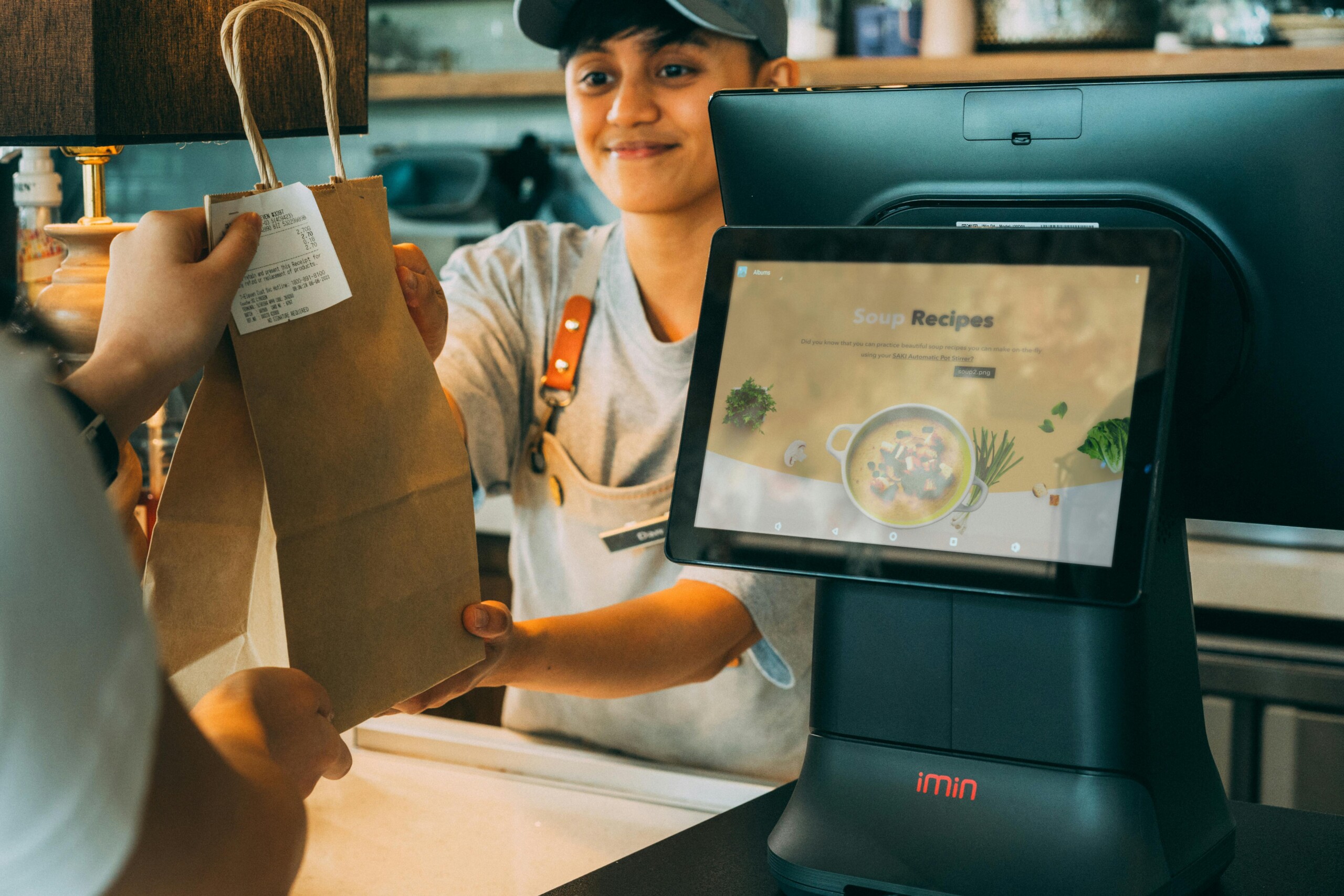How POS Systems Can Improve Sales


If you’re a retail owner or a POS solution provider, you’ve probably wrestled with the question: “How can POS systems can improve sales?” You’re not alone in seeking clarity—this is a hot topic in the retail community, and understandably, there’s no silver bullet answer. The impact of POS systems varies widely, tailored to the specifics of each retail environment.
Point of Sale (POS) systems have evolved from simple transaction processors to essential tools that manage inventory and customer relationships. In this article, we’ll break down the core functions of modern POS systems and how they transform mundane transactions into opportunities for growth and customer connection.
By the end, you’ll have a clearer picture of how these systems can keep your operations running smoothly and significantly enhance your sales efforts. Let’s uncover the potential together, examining specific ways POS technology can meet the unique challenges of your retail business.
The Role of POS Systems in Retail Operations
POS systems aren’t just about processing transactions; they’re at the heart of modern retail operations, boosting efficiency and enhancing sales strategies. Let’s dive into how these systems function and the concrete benefits they bring to the sales floor.
In any retail setting, POS systems are the central hub for business activities. They do more than handle sales; they integrate inventory management, customer management, and sales analytics into one seamless operation. This integration ensures that everything from stocking shelves to finalizing sales is smooth and efficient.
Direct Benefits of POS Systems for Sales Operations
- Streamlined Transactions: POS systems can improve sales by speeding up the checkout process, allowing more transactions to occur in less time. This efficiency is crucial during peak shopping hours, turning what could be a customer’s frustration into a satisfying shopping experience.
- Enhanced Data Analysis: With robust analytics features, POS systems help retailers understand sales trends, track best-selling items, and adjust their strategies in real-time to maximize profits. This insight is invaluable for sustained retail sales growth.
- Improved Inventory Management: Automatic stock updates and real-time inventory tracking prevent overstocking and stockouts, ensuring that popular items are always available, thus directly boosting sales potential.
- Integration with QR Code Service Providers: In regions like the USA and Canada, integrating QR codes provided by local QR Code Service Providers enhances the customer experience. Shoppers enjoy a smoother, faster checkout process, and retailers benefit from a more reliable and trackable sales system.
How POS Systems Enhance Customer Experience
Improving customer experience is a crucial aspect of any retail strategy, and POS systems are at the forefront of this initiative. By leveraging advanced features, these systems facilitate smoother operations and directly enhance the quality of service that customers receive.
- Faster Checkout Processes: Modern POS systems reduce wait times with efficient scanning and payment processing. This speed and ease improve shopping experiences, especially in high-volume stores.
- Personalized Interactions: POS systems often have CRM features that store customer preferences and purchase history. Personalized recommendations and promotions from sales associates can improve the customer’s shopping experience and build loyalty.
- Loyalty Programs Integration: POS systems simplify loyalty program enrollment, point updates, and rewards. This smooth operation fosters long-term customer relationships.
- Multichannel Consistency: POS systems with omnichannel capabilities provide a consistent customer experience online, via mobile app, and in-store. In the digital age, coherence is essential for customer satisfaction.
Examples of How POS Technology enhances Customer Experiences
- Example 1: A boutique clothing store implemented a POS system with integrated client profiles. Sales associates can now quickly access a customer’s size preferences and purchase history, making suggestions for more personalized and satisfying shopping visits.
- Example 2: A large electronics retailer uses its POS system to manage an effective loyalty program. Customers earn points for each purchase, which can be redeemed for discounts on future purchases. The POS system automatically updates point balances and informs customers of potential rewards at the checkout, enhancing engagement and encouraging repeat visits.
- Example 3: A bookstore with multiple branches uses a unified POS system to maintain inventory visibility across all locations. Customers can check online if a book is available at their nearest store and reserve it for pickup. This convenient feature, supported by real-time data from the POS, improves customer satisfaction by making shopping more convenient and reliable.
Streamlining Inventory and Operations with POS

Modern POS systems are essential for efficient inventory management in retail. Using real-time data, these systems ensure accurate inventory levels, which boosts sales and store performance. POS systems integrate multiple inventory management functions to streamline operations:
- Automated Stock Updates
- Barcoding and RFID Scanning
- Centralized Inventory Control
Benefits of Real-Time Inventory Tracking and Its Impact on Sales Efficiency
- Reduced Stockouts and Overstocks: Real-time inventory tracking helps retailers maintain optimal stock levels, minimizing the chances of running out of popular products or overstocking items that aren’t selling. This balance is crucial for maximizing sales and reducing carrying costs.
- Enhanced Ability to Meet Customer Demand: With accurate inventory data, retailers can quickly respond to changing customer preferences and market trends. This responsiveness improves customer satisfaction and boosts sales by ensuring that sought-after products are always available.
- Improved Procurement Planning: Real-time data provides insights into sales trends and inventory turnover, which inform more strategic purchasing decisions. Retailers can adjust their procurement to better align with customer demand, minimizing waste and enhancing profitability.
- Increased Operational Efficiency: By automating many routine inventory management tasks, POS systems free up staff time, allowing employees to focus more on customer service and sales activities. This shift improves the overall workflow and contributes to a more dynamic sales environment.
Case Studies: Real-Life Success Stories
Exploring real-life applications of POS systems illustrates their transformative power in retail settings and how they drive tangible improvements in sales and operations. Here, we highlight a few case studies that showcase significant enhancements in various retail environments due to the adoption of advanced POS systems.
Case Study 1: Boutique Clothing Store
Background: A boutique clothing store struggled with inventory discrepancies and missed sales opportunities due to outdated manual processes.
Changes Made:
- Implemented a modern POS system with integrated inventory management and CRM capabilities.
- Trained staff to utilize data insights for personalized customer marketing and promotions.
Results Achieved:
- Inventory accuracy improved by 95%, reducing stockouts and overstock scenarios.
- Sales increased by 30% within the first year, driven by targeted promotions and improved customer engagement.
Case Study 2: Nationwide Electronics Retailer
Background: A large electronics retailer faced challenges with sales consistency and customer retention across its numerous locations.
Changes Made:
- Deployed a POS system capable of handling large transactions and managing loyalty programs effectively.
- Integrated real-time analytics to monitor sales trends and adjust strategies dynamically across all stores.
Results Achieved:
- Unified customer experience across all channels led to a 25% increase in customer retention.
- Real-time sales data enabled quick inventory adjustments, increasing overall sales efficiency by 20%.
Case Study 3: Specialty Bookstore Chain
Background: A chain of speciality bookstores wanted to enhance customer service and streamline operations across its various branches.
Changes Made:
- Introduced a POS system with omnichannel capabilities, including online order processing and in-store pickup.
- Implemented inventory tracking that updated in real-time, coupled with a customer-facing app that showed item availability.
Results Achieved:
- Customer satisfaction scores rose by 40% due to improved service speed and convenience.
- Overall sales grew by 15%, and operational costs decreased due to better inventory management.
These case studies demonstrate the versatility and impact of POS systems across different retail settings. Businesses have seen substantial improvements in sales and operational efficiency by addressing specific operational challenges and leveraging technology to enhance customer interactions.
Overcoming Challenges with POS Implementation

Implementing a POS system is like any new technology: it’s difficult. Retailers often face several obstacles to system integration. Knowing and preparing for these challenges can help the transition go well.
- Resistance to Change: Employees accustomed to traditional methods may resist adopting new technologies, fearing the learning curve or potential disruptions to their workflow.
- Data Migration Issues: Transferring existing data (like inventory codes, customer profiles, and sales history) into a new POS system can be complex and fraught with issues, leading to potential data loss or corruption.
- Integration with Existing Systems: Ensuring the new POS system works harmoniously with existing software, such as accounting systems or e-commerce platforms, is crucial and can sometimes be technically challenging.
- Cost Implications: The initial investment for a high-quality POS system, including hardware and software, can be significant, especially for small to medium-sized enterprises.
Solutions and Best Practices for a Smooth Transition
- Employee Training and Engagement: Prioritize comprehensive training sessions that are accessible and engaging. Allow employees to express their concerns and suggest solutions to make them feel a part of the transition process.
- Choose the Right Vendor: Select a POS vendor with robust support and training resources. Ensure they have experience in your retail sector and can provide references or case studies demonstrating their capability.
- Phased Implementation: Instead of a full-scale immediate rollout, consider implementing the new POS system in phases. This approach allows for adjustments along the way and reduces the impact of potential issues on daily operations.
- Ensure Robust Data Backup Procedures: Before migrating data, ensure comprehensive data backup procedures are in place to prevent data loss. Test the migration process to identify and resolve issues before going live.
- Budget Accordingly: Plan for the total cost of ownership, which includes not just the initial purchase but also ongoing maintenance, updates, and training. Consider financing options or leases if upfront costs are prohibitive.
Conclusion
POS systems are crucial in modernizing retail operations and enhancing sales performance. They improve inventory management and customer experiences and streamline operations.
Key benefits include faster transactions, personalized service, improved inventory management, increased sales efficiency, and seamless integration with other business management tools. Real-time tracking helps maintain optimal stock levels, reducing stockouts and overstocks.
Streamlined operations and insightful data analytics enable retailers to make informed decisions, boosting sales.
Integrating an advanced POS system is an operational upgrade and a strategic move that can set a business apart in a competitive market. As retail evolves, leveraging the latest technologies is essential for staying competitive.
At 44degNorth, we understand the nuances of retail challenges and offer tailored solutions that align with your business goals. Our expertise in providing cutting-edge POS solutions ensures that your transition to a more efficient and profitable business model is smooth and successful.
Contact 44degNorth today to explore how POS systems can improve sales, transform your retail operations, and boost your sales.
Dial Now: +1 (647) 937-9080
Email At: innovation@44degnorth.tech
